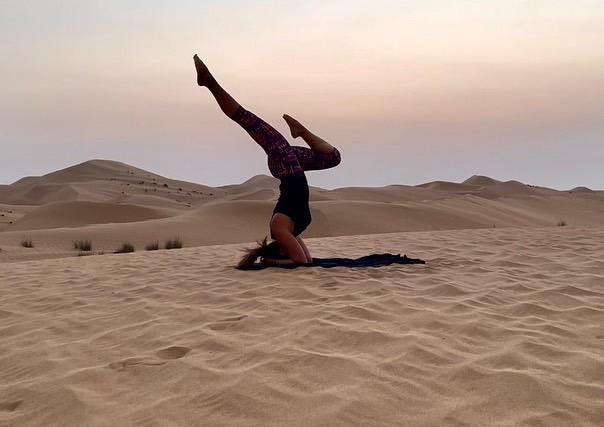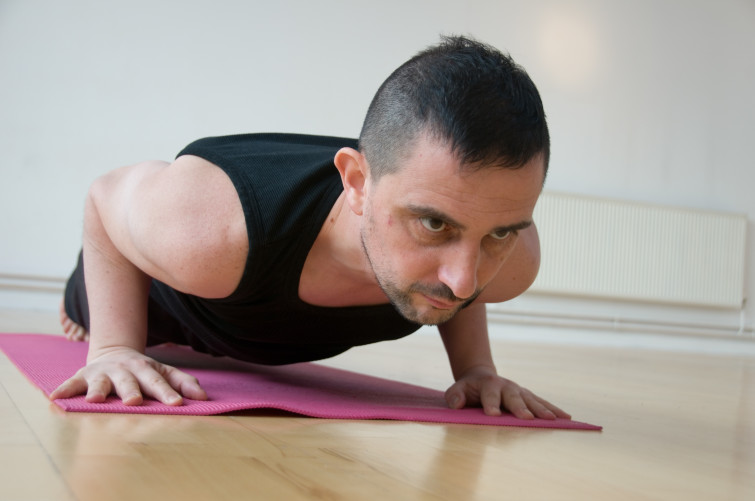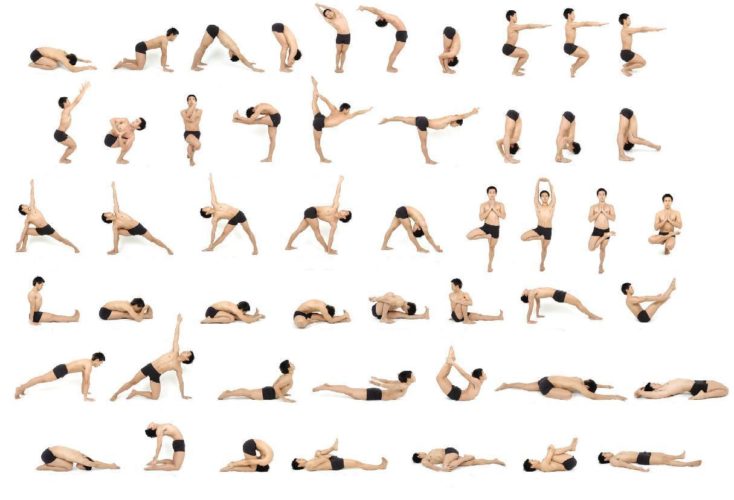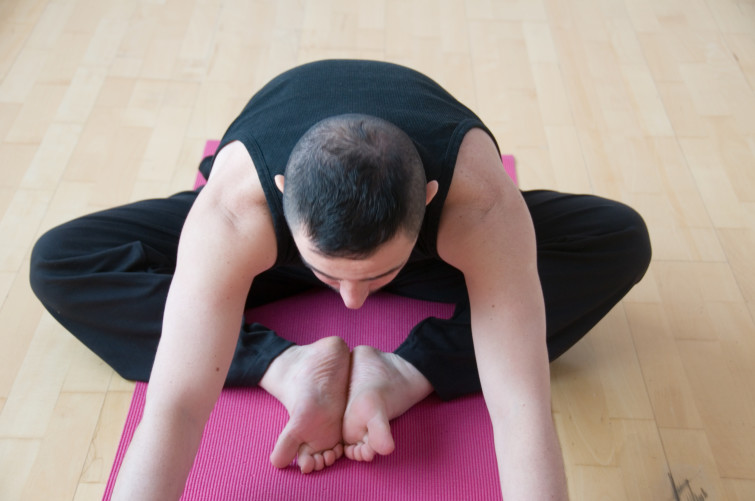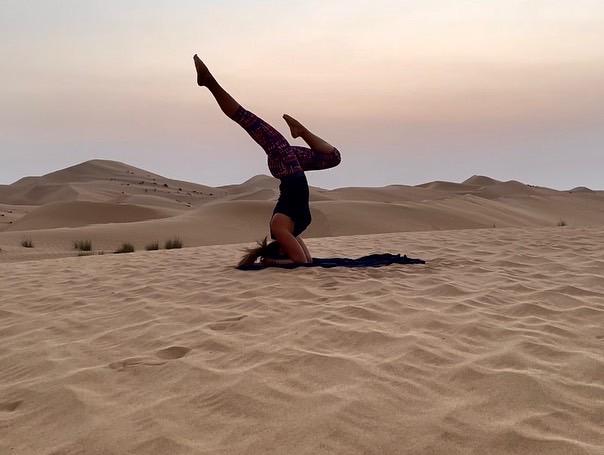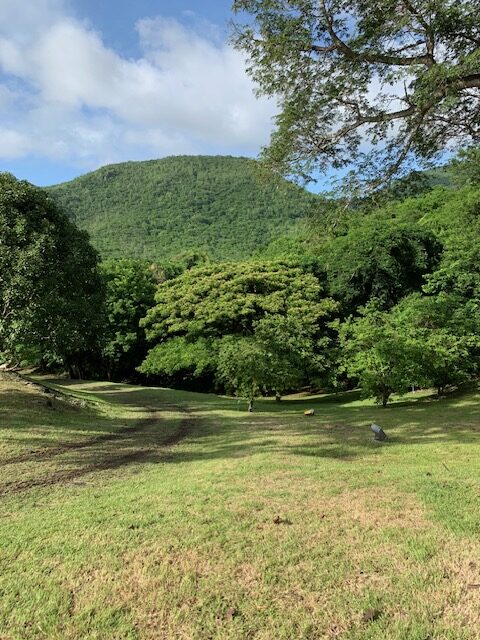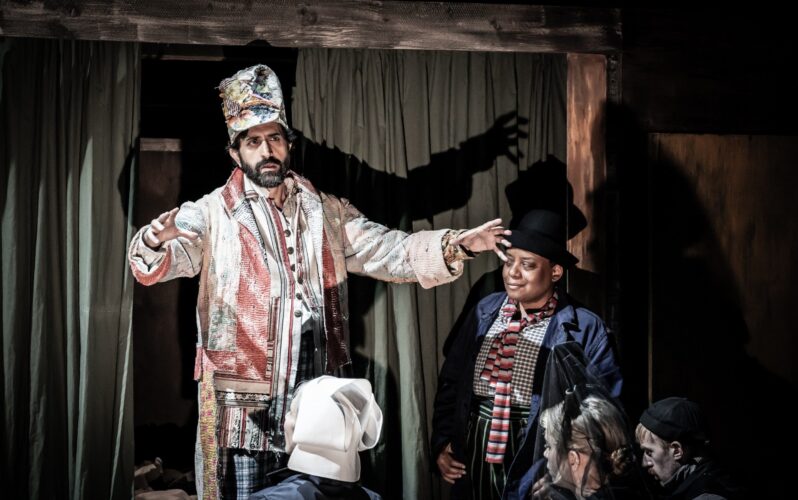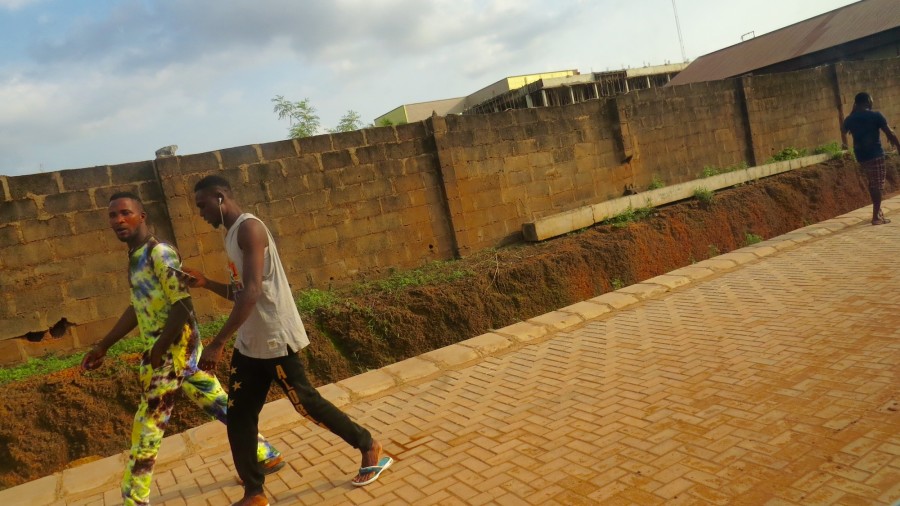Yoga: maintaining wellness on all levels
Interview with Tarik DervishTarik Dervish is an experienced Ayurvedic Practitioner and Yoga Teacher/ Trainer. He runs Ayurveda for Yoga Practitioners courses in Central London which are British Wheel of Yoga accredited. Discover Tarik's website YogaWell
Tarik, how did yoga come into your life?
I remember even as far back as the age of 9 or10, I was interested in esoteric subjects. I learnt the Astrological signs when I was a child and have maintained an interest in the subject of human nature ever since. When I was 17, my brother and father became involved with Prem Rawat who has now become a global spiritual teacher and soon after, I was inspired to discover his teachings for myself so I was initiated into a series of meditation techniques that I still use today. Meditation helped me tremendously throughout the turbulent teenage years and my early twenties. At the age of 24, I returned from my very first job teaching English in Istanbul and embarked on a whirlwind learning adventure. I took up Yoga, enrolled on a course in Aromatherapy and took evening classes in Astrology. I was interested in exploring Yoga at that time because I felt the need to understand the tradition and context from which Prem Rawat’s teachings came. My first foray into Hatha Yoga was with the Sivananda Yoga Vedanta Centre in London. I explored the teachings of Sivananda for many years thereafter, then moved over to the Iyengar system of Yoga to understand, or so I believed at the time, how Yoga postures should be practised. After 6 years of Iyengar Yoga and several injuries, I returned to gentler forms and spent time developing a relationship with the Mandala Yoga Ashram run by Swami Nishchalananda, a direct disciple of Swami Satyananda Saraswati who started the Bihar School of Yoga. When I decided to become a Yoga teacher, I chose the British Wheel of Yoga because it offers a broad foundation and encourages you to develop your own teaching style. I graduated in 2001 and almost immediately started a degree in Ayurveda. My work now incorporates the two subjects together.
How did yoga change your life?
Are you happier, more balanced, peaceful?
I have been practising Yoga and Meditation for so long now that I couldn’t really make a comparison because I haven’t experienced much contrast in my adult life so when you ask if I am happier or more balanced, all I can say is that if I don’t practise for long periods of time, then I definitely notice that I am more at the mercy of my emotional drives and my mind is less focused.
Yoga: what exactly does it mean?
Yoga means many things to different people and all of them are valid within context. For some people, it is a physical discipline that involves mastery over the body. In India in the late 1800s when Yogis were no longer supported in society, they resorted to public performances of extreme postures to earn a living. Over time, Yoga became associated with extreme contortions of the body which is a shame really because the popularity of Yoga as a physical process becomes another distraction for many. Many teachers talk about Yoga being about “Union” or the merging of the individual self with the cosmic self but in modern western life, this has largely become a physical not a spiritual process. Of course, there is no real separation per se but the amount of time spent working on the more subtle aspects of our being has become a bit of an afterthought in most Yoga classes.
For me personally, Yoga is a way of maintaining wellness on all levels. My first priority is Yoga for health because without physical and emotional health, it is difficult to go any deeper. This is why I call my work Ayurvedic Yoga Therapy (AYT). I differentiate what I do with mainstream popular traditions which I believe have a narrower and more specialised focus. In AYT, the main aim is to gain physical, mental and emotional wellbeing so that one can become more skilful in mundane life and gain fulfilment from it. I believe that fulfilling basic human needs is a way of accelerating spiritual evolution not holding it back.
Can yoga be just a physical “keep-fit” discipline?
Can yoga be just a physical “keep-fit” discipline, or is the spiritual dimension intrinsic?
I believe that without a philosophical component, the physical practice of Yoga cannot strictly be called Yoga. Others believe that by simply practising Yoga, you get the benefits anyway and the practice changes you. Many people who start off with the latter become attracted to the deeper aspects of Yoga simply because they have proof of its effectiveness in their own lives.
how can one choose between different types of yoga?
There are so many different types of yoga: British Wheel, Bikram, Hatha, Iyengar, Vinyasa Flow... how can one choose between them...?!
It is more important to find a good teacher than the right style. Of course there are many good teachers in all styles but within every style of Yoga there are also bad ones. Teachers are becoming more and more eclectic as time goes on so being able to identify a style is becoming more difficult unless it is fixed and licensed like Iyengar or Bikram. Find a local teacher whose classes you like and can attend regularly and take it from there. The practice itself will inform you. The most important thing to remember is that you are ultimately your own best teacher and guide. Many poorly trained teachers will give you poor advice on how to approach your practice and how to look after yourself. I made this mistake many times and had several injuries. Trust your own judgement!
Does a person need to be very flexible and young to practise yoga?
Does a person need to be very flexible and young to practise yoga? For example, could an arthritic, elderly person also benefit?
Many people say to me that they can’t do Yoga because they are not flexible enough. If you see me practise, you will soon realise that I am not very supple either! I practise Yoga because I need it. People who are naturally supple and strong need physical Yoga less and subtle Yoga more. They need more Pranayama and Meditation. There’s something for everyone in Yoga, young or old. I taught a group of people at Age Concern for many years and my oldest student was 92!
what is Ayurveda?
You are specialised in Ayurvedic yoga: what is Ayurveda?
Ayurveda means “Knowledge of Life”. It is the sister science of Yoga and both disciplines developed at the same time. The emphasis of Yoga is spiritual development and the emphasis of Ayurveda is healing. Frawley, a well known teacher of Ayurveda says ‘where Ayurveda ends, Yoga begins’. This is the maxim on which my work is built. First make yourself as strong and as well as you can then you can concern yourself with the deeper and more challenging aspects of Yoga practice. Note, these are the tantric practices not more extreme physical contortions.
Do you see your clients’ lives improving with yoga and Ayurveda?
Yes all the time. I find that students who adapt their diet and lifestyles according to their constitution, take herbs and practise Yoga regularly, see tremendous benefits.
Is daily practice essential?
Is a weekly one and a half hour yoga class enough to notice improvements? Or is daily practice essential?
Of course, daily practice is best because you build up a momentum but I remember that when I first started Yoga, I only attended a weekly class. Any way of fitting it into your life is better than nothing at all.
Do you believe there is a higher intelligence and purpose?
Do you believe life is haphazard and random? Or do you believe there is a higher intelligence and purpose?
I believe life is a mystery and anyone who thinks they have all the answers is a fool. I also believe that life is a paradox. Polarised concepts can both be true. Is energy made up of waves or particles? Both, depending on what the observer expects. According to my experience, life is not haphazard or random but can be chaotic when it needs to be. Chaos is an archetypal force much like Order is. Do I think there is a higher intelligence? Yes but I can’t prove it! I have read that it reveals itself to whom it chooses and they are very few indeed.
Could you tell us a particular story of transformation?
Yoga and Meditation helped me to manage acute depression throughout my twenties. I have suffered from bouts of depression my whole adult life but with the help of Meditation managed to cultivate enough detachment from my inner state to sustain a level of normality and luckily not have to resort to substance abuse like many others. I realise now that I was extremely lucky to find Yoga and Meditation when I did otherwise my life could have taken a very different turn. Even after starting to practice Ayurveda, I still suffered from terrible episodes of lower back pain but after many years of trial and error, I have managed to identify the diet and lifestyle issues that exacerbated the problem. I have now been pain free for 2 years and feel as though I am going from strength to strength. I am however mindful that I have developed a weakness in this area and always have to remember how to take care of myself properly to avoid another crisis.
Does yoga improve sex?
Well you get more flexible and the deeper practices help you to harness energy so why not!
Were your ancestors dervishes?
Your family name is Dervish. Were your ancestors dervishes?
My grandfather was a priest. His name was Dervish Celalettin which was the surname of Rumi. My father ditched the surname when he moved to the UK and used my Grandfather’s first name as his surname to help with integration. I understand that my great grandfather was also a priest in Southern Turkey where we originated so I guess there must be some connection with Sufism somewhere along the line.
Could you tell us something about Sufism?
Sufism is the mystical arm of Islam that focuses on the deeper spiritual truths of the teachings of Mohammed. It is not dissimilar to the mystical teaching of other religions that are not understood by mainstream worshippers. Inayat Khan was a good teacher of Sufism. His books are clear and profound.
Are Islam and Yoga compatible?
I believe that Yoga is the mother of all religions so yes. However, some Muslims and Christians would say that Yoga is the work of the Devil because they believe it stirs up aspects of the human condition that can be destructive. Christianity and Islam are very similar monotheistic religions that require you to put your faith into God/Allah alone. There are some verses in the Vedas (ancient scriptures of Hinduism) that say the same thing but the core teachings of Yoga are inspired by Patanjali’s Yoga Sutras, which focus on the machinations of the Mind and why we really suffer. It recommends religious faith as just one approach to overcoming suffering, but not the only way.
Tarik Dervish
How many languages do you speak?
My mother language is Turkish but my main language is English if that makes sense. I never formally studied Turkish so it’s not that great. I also studied French and Spanish at University.
In how many countries did you live?
I’ve lived in Spain, France, Wales, India and Turkey.
Istanbul
Did you enjoy living in Istanbul? Why?
Actually if I am completely honest, I found living in Istanbul very stressful. I was only 22 and my first job was teaching hundreds of children English in two different schools. I was exhausted the whole time! I have complete sympathy for school teachers today! Istanbul at that time was also going through a great transformation. Chimneys used to belch out smog, roads were poorly kept and there was a lot of military presence on the streets. In hindsight however, I have fond memories of my time there and realise what a great adventure it was.
Cyprus
Your parents are Cypriots. How often do you travel to Cyprus?
We have a house outside Magusa so I go every year with my mother to help maintain it.
Do you think peace and reunification are possible today?
I am always hopeful but there are so many vested interests in keeping things as they are that it would take a great deal of political will to change anything.
London
Let’s talk about London: London does not sound like the best place for a yoga retreat! Can you give us a few tips on how to reach a good balance between city work commitments and finding breathing space?
London is actually a good place to practise Yoga because you need it so much! The fast paced urban demands of the big city are in direct contrast to the peaceful therapeutic environment of a Yoga studio. I live in Brighton now and it seems to me that people are generally much happier here and don’t need Yoga as much as those in London.
It’s important to create a little sanctuary in the corner of the room somewhere that you associate with relaxation. You can create a little altar with a candle and perhaps a couple of crystals or an essential oil burner and have a little cushion for meditation. Your Yoga mat can be nearby too. Without this balance, it is difficult to remain centred. This is why so many people get “lost” when they move to London. They lose connection with the aspect of themselves that is most important because the distractions of London are very powerful and seductive. Today’s drug culture for example is a good example of “loss of self”. Ironically, one reason why people take drugs is to have a transcendental experience. There are many practices of Yoga that can offer the same thing but with Yoga, by and large, you have to put in the time and effort in to have experiences. Until there is a change in the culture of ‘instant gratification’, the problems that beget our society will not be easily overcome.
Where would you most like to live?
I am a Londoner who lives by the sea in Brighton at the moment which I love. I identify myself as a Londoner first and foremost. Good places to live are as much about the people you share with, as they are about the environment itself so if I could take all my friends and family with me, then obviously, somewhere warm, sunny and abundant in resources would be great!
FΩRMIdea Brighton, 5th February 2016.
